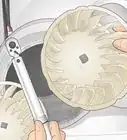X
wikiHow is a “wiki,” similar to Wikipedia, which means that many of our articles are co-written by multiple authors. To create this article, 10 people, some anonymous, worked to edit and improve it over time.
This article has been viewed 21,595 times.
Learn more...
Getting ready for the big tryouts can be a bit frustrating and overwhelming. You're probably asking yourself, "How can I improve my soccer skills and do well in the tryouts?" Some people will give you this short and simple answer, Practice. But you're probably looking for a more detailed way to improve. If that's what you're looking for, start with step 1, below.
Steps
Part 1
Part 1 of 3:
Developing Good Soccer Skills
-
1Get good control over the soccer ball. You don't want the ball slipping from under your feet do you?
- Practice dribbling and scoring. (Going to an empty field to practice dribbling and scoring is a good idea). However, there is only so much you can do on your own. Ideally, it is best to have a partner or, even better, partners to practice with. Then, you can mimic game time situations and moments, and practice movement with a ball and with other players.
- Find a good brick wall, draw a circle on it, and practice scoring into that circle. Practice both feet, because it isn't relevant to be only right or left-footed.
-
2Get really good running/dribbling speed. If you can’t run a series of sprints without feeling completely out of breath, you need to work on your speed and endurance. Practice doing 8-10 100 yard sprints in a row, at least 3 times a week, in the month before your tryout.
- Squatting also helps speed. The overhead squat is a time-tested exercise requiring full-body range of motion. It takes some practice to get it right, but there is no better exercise to encourage maximal gluteal and hamstring activation. You also end up gaining strength and neuromuscular power you could never hope to achieve on a squat machine or with a typical half-depth standing squat. Just try to this with a partner to help analyze your form, if possible.
- Stand with heels as wide as shoulders, toes pointing slightly out, and arms overhead, elbows locked. Squat down as low as you can, encouraging gluteal contraction, and keeping your back as straight as possible. Hold this position as long as you can. As you continue to do this exercise, you will be able to do it longer.
Advertisement -
3Learn how to score a goal. This skill is crucial to learn and requires a lot of practice.
-
4Learn how to dribble a soccer ball past an opponent.
Advertisement
Part 2
Part 2 of 3:
Getting in Shape
-
1Build good eating habits for sports performance. It is important to be healthy out on the field. Also, eating well will indeed increase your stamina.
-
2Exercise every day. It's necessary to be active in soccer, due to the transitions and moving you have to do.
-
3Get in shape for your tryouts. This means understand your position and prepare to play soccer.
Advertisement
Part 3
Part 3 of 3:
Feeling Comfortable with Your Team
-
1Make sure this team you are trying to make is fit for you. If you are trying to play in an older league, make sure that the team fits your need for a challenge. If you want to play for a select team, but you are still looking to have fun more than anything else, you will want to be sure you agree with the philosophy of your coaches.
-
2Feel comfortable with your coach's philosophy. In other words, make sure you agree with the coach's way of teaching the game. Understand what your coach is trying to tell you. Understand that your coach is looking for soccer skills, not personality.
- Respect what your coach says or tells you to do. Make sure you respect your coach, but have enough will-power to decline if your coach wants you to do something that doesn't reach the rules of the game.
-
3Gain your team's trust. Play the game and pass the ball to other players. Do not hog the ball to yourself expecting to get to the goal in time. Pass the ball. This develops team work and help your team mates want to gain your trust.
-
4Be fair with your teammates and the competitors. If someone has fallen, help them up and play fair.
-
5Prove to your coach that you're good with working with your teammates. Most coaches want to see how well you react to situations and how well you can use the environment or space to your advantage.
-
6Don't place blame. When people work together, honest mistakes and disappointments happen, and it's easy to blame someone who causes these. However, when everyone starts pointing fingers, an unpleasant atmosphere can quickly develop. This lowers morale, undermines trust, and is ultimately unproductive. Instead, encourage everyone in your group to think about the mistake in a constructive way. What can you all do to fix what happened, and move forward together? And how can you make sure that this mistake doesn't happen again?
Advertisement
Community Q&A
-
QuestionI have soccer trials tomorrow and I'm not fit enough for it. Any advice?
 Community AnswerUnfortunately, you cannot get fit in one day, but if you start conditioning now, you can be ready for tryouts next year, or you can try to make a different team. Of course, there's no harm in trying, so if you feel up to it, go to your tryout tomorrow, and if you don't make it, ask the coach if he has any tips for you.
Community AnswerUnfortunately, you cannot get fit in one day, but if you start conditioning now, you can be ready for tryouts next year, or you can try to make a different team. Of course, there's no harm in trying, so if you feel up to it, go to your tryout tomorrow, and if you don't make it, ask the coach if he has any tips for you. -
QuestionIts July 19th 2018 and my soccer tryouts are on August 8, do I still have time to start practicing?
 Community AnswerYes. Be strong, be confident, be fearless. Run your hardest and don't give up. And when you are out there, put in your mind, "THIS IS MY BALL" and go get it.
Community AnswerYes. Be strong, be confident, be fearless. Run your hardest and don't give up. And when you are out there, put in your mind, "THIS IS MY BALL" and go get it. -
QuestionShould I try out for soccer if I have never done it before?
 Community AnswerThat is up to you. If you're really interested in the sport, go for it -- you may make the team!
Community AnswerThat is up to you. If you're really interested in the sport, go for it -- you may make the team!
Advertisement
About This Article
Advertisement
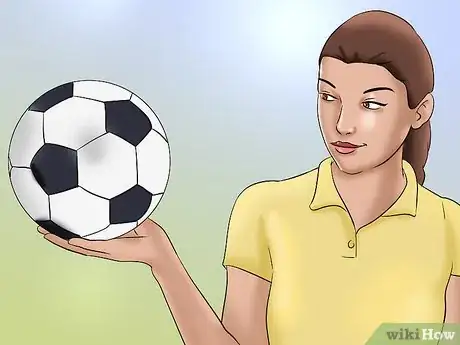
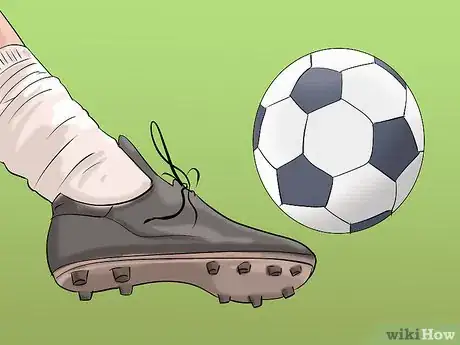
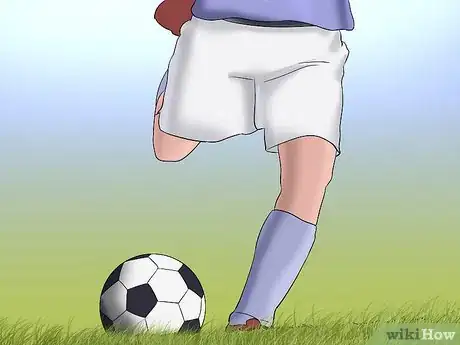
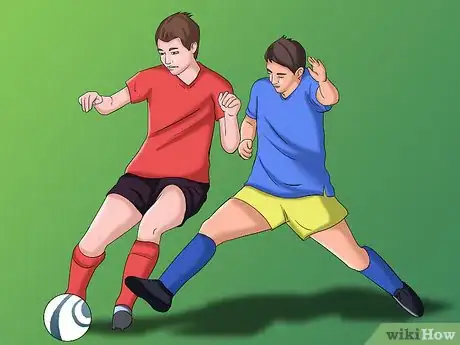
-Step-2-Version-2.webp)
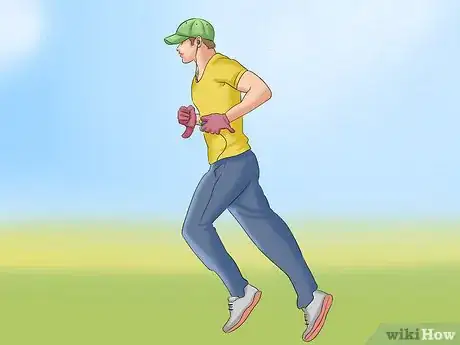
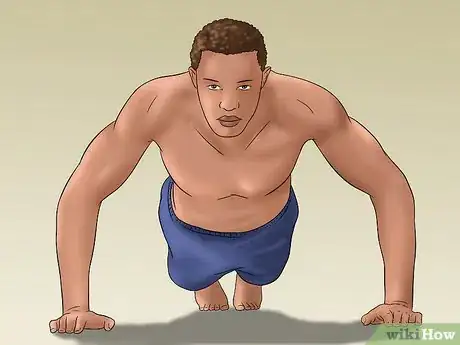
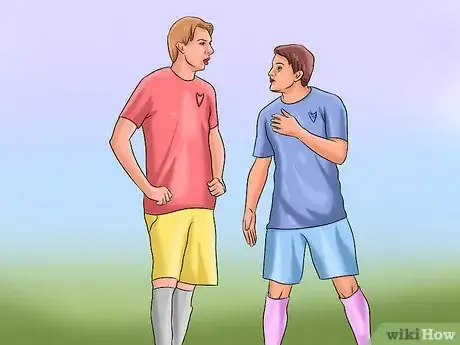
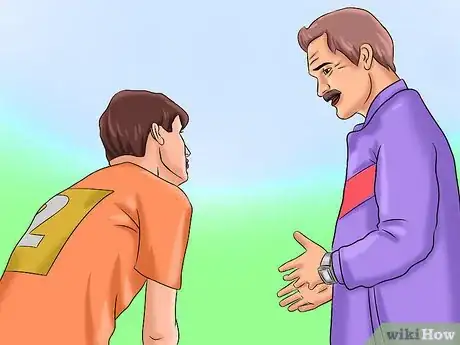
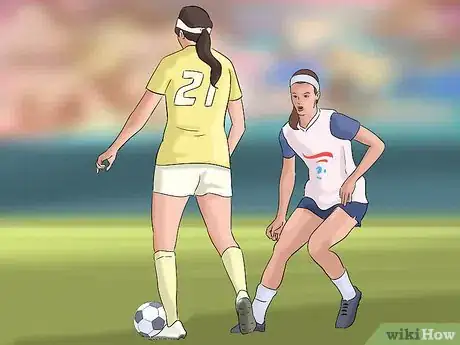
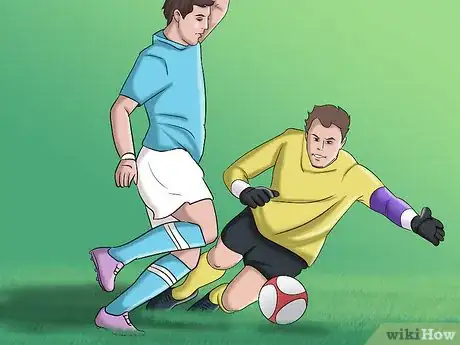

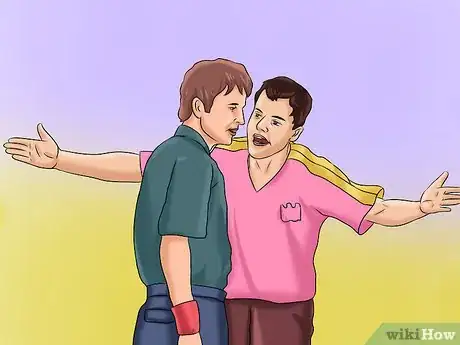
-Step-11-Version-2.webp)

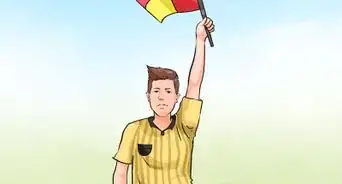

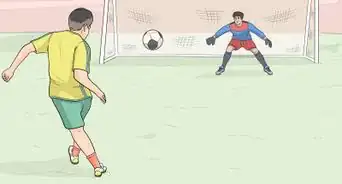




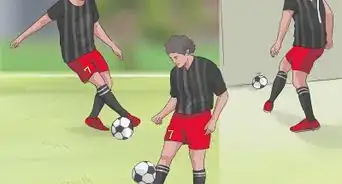

-Step-11-Version-2.webp)

























